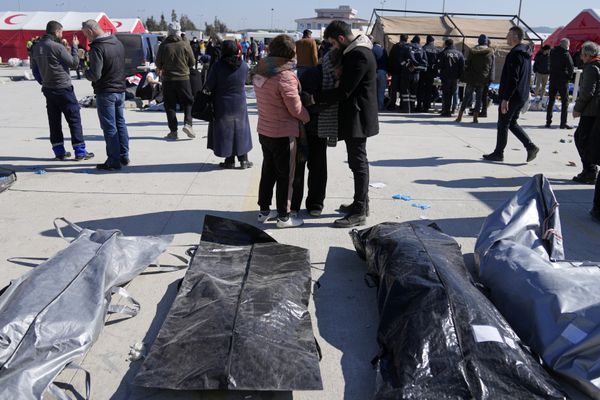
OTTAWA — Immigration Minister Sean Fraser signalled this week that Canada may fast-track applications to come to Canada from people in the earthquake zones of Turkey and Syria.
Two major earthquakes rocked southwestern Turkey and northwestern Syria in a matter of hours on Monday, destroying thousands of buildings.
The confirmed death toll keeps rising, with more than 19,800 people killed and at least another 64,000 injured.
Tens of thousands more are homeless in the middle of winter and struggling to access food, water and shelter.
Fraser said his department is trying to figure out the effect on permanent residency applicants already in Canada’s immigration system to determine how to help them.
“This is a conversation that we’re having,” he told reporters.
“We’re trying to understand what the impact is on the clients who are in the system.”
On Wednesday, Canada deployed a disaster assessment team to the region to determine what additional aid from Canada is needed.
A team of search-and-rescue experts from British Columbia that independently offered to help was expected to begin on-the-ground work in the early hours of Thursday local time.
Many governments, including those of the United States, United Kingdom, Japan, India and European Union, have sent rescuers to the region. Countries including South Korea, Israel and Spain have deployed military personnel.
Canada’s decision about whether to send a Disaster Assistance Response Team could take a few more days, based on previous examples of such deployments.
When a 7.8 magnitude quake hit Nepal in 2015, Canada similarly sent an assessment team to the country first to decide what kind of support it could provide. It departed about a day after the disaster hit.
The earthquake killed nearly 9,000 people and injured at least 22,000.
About six days after Canada sent its assessment team, it deployed the response team, which included about 200 personnel.
The government reported that the team provided engineering, medical and mapping support. Its members also cleared roads, provided water filtration systems, distributed radios and removed some 3,000 cubic metres of rubble.
With time now running out to recover more people who could be stuck under rubble, United Nations Secretary-General António Guterres is pressing the international community to provide money for Turkey and Syria and work on physical access for aid to earthquake-stricken parts of Syria.
Canada announced on Tuesday that it was providing $10 million in humanitarian assistance.
On Wednesday, the government said it would also match up to $10 million in donations to the Canadian Red Cross earmarked for earthquake relief between Feb. 6 and 22.
Some groups, including the Federation of Canadian Turkish Associations, have urged Ottawa to do much more than it has so far.
“Relief efforts in Turkey and Syria will need far more support in the coming weeks,” NDP foreign affairs critic Heather McPherson said in the House of Commons on Thursday. “Canadian partners are stepping up to help, but they need more support.”
She urged the government to match donations made to the Humanitarian Coalition, a group of 12 Canadian aid agencies.
International Development Minister Harjit Sajjan responded that a needs assessment is ongoing and “all options are on the table,” including an additional matching fund or a direct contribution to the coalition.
On Thursday, hopes were starting to fade of finding many more people alive, more than three days into the crisis.
The deaths reported so far have surpassed the toll from a 2011 earthquake off Fukushima, Japan, that triggered a tsunami, killing more than 18,400.
The Turkish Association of Canada is accepting donations of items such as blankets, clothing, boots, tents, sleeping bags and sanitary products at its office in Ottawa, to be sent to survivors who are in need of supplies.